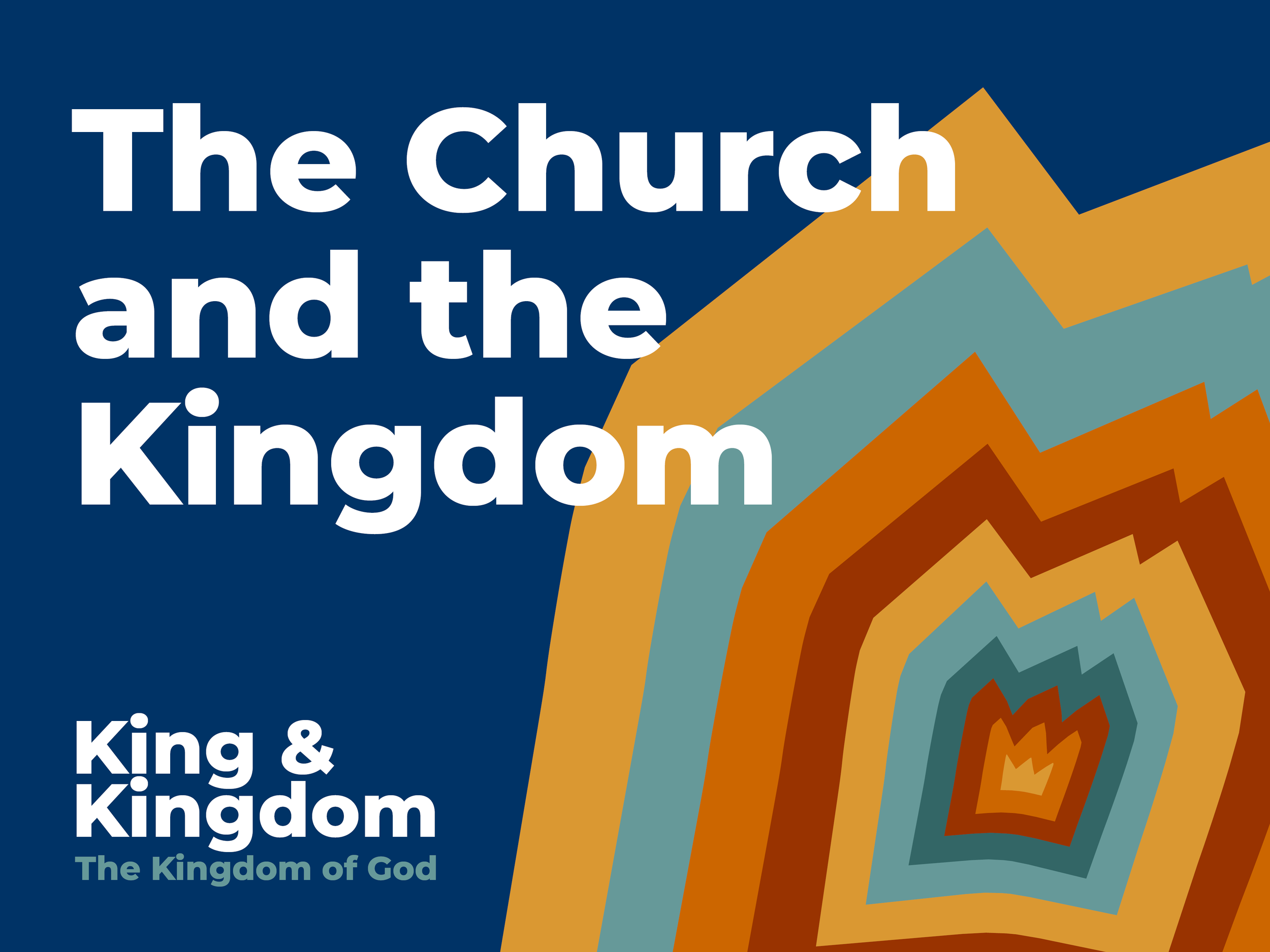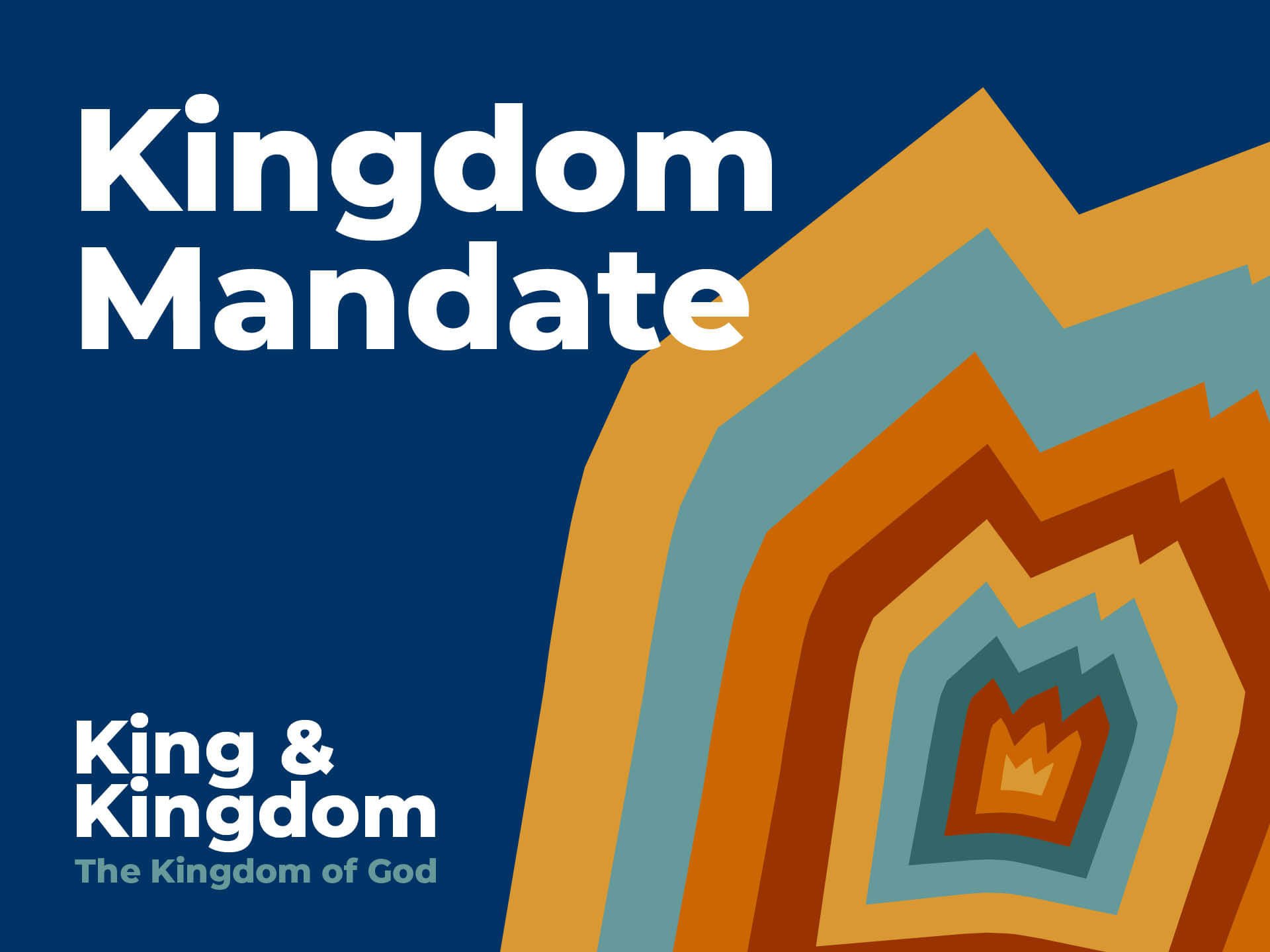Parables of the Kingdom
About this series:
Throughout 2023 all our teaching series will be looking at The Kingdom Of God. The essential goal is to help people understand the Bible’s teaching on the kingdom of God and raise confidence in God’s plans for his kingdom’s expansion / multiplication.
Our first series on the kingdom starts with an introduction to the king and his kingdom and then develops that biblical theme from the establishing of God's kingdom in creation to his choosing of a special people who would be set apart for him, how God's kingdom clashes with that of the world and the choices we therefore have to make, how we're to be a blessing while we live in the world but not of it, the promise of a coming anointed king bringing to reality the rule of God in / through the life of his people, the coming of the kingdom in a new way in Jesus as promised in the OT, what Jesus expected life in the kingdom of God to look like, what Jesus taught about the kingdom in parables, how the church relates to the kingdom and the future kingdom.
Preaching about The Kingdom Of God is a great way to address life as a church community - this is how life together under God’s reign should look like. And to address our lives in the world - demonstrating to those in our sphere of influence the reality of God and what life looks like when God is your king.
About this talk:
Scripture: Matthew 13:1-52
The word parable is a translation of the Greek word παραβολην (parabolēn) from παρα (beside) and βαλλω (to cast) meaning to cast beside: it is, therefore, ‘a teaching aid cast alongside the truth being taught’ (biblehub.com). Some definitions of the biblical genre of parable:
Klyne Snodgrass: ‘Stories with intent’ and ‘an expanded analogy.’
William Mounce: ‘A story from everyday life used to illustrate a moral or religious truth.’
C. H. Dodd: ‘At its simplest the parable is a metaphor or simile drawn from nature or common life, arresting the hearer by its vividness or strangeness, and leaving the mind in sufficient doubt about its precise application to tease it into active thought.’
Jesus’ parables usually involve a number of elements as he uses a situation familiar to his hearers to bring out a truth about God and life in his kingdom. However, parables do not need to be extended stories. In Luke 4:23, for example, the same word is used for a short saying - “Physician, heal yourself!” (though the NIV translates παραβολην here as “proverb”).
Most of Jesus’ teaching about the kingdom of God was given in parables - “What shall I compare the kingdom of God to?” (Luke 13:20) and he spoke in parables for a variety of complementary reasons:
To make truths about God’s kingdom plain to his disciples, while keeping them hidden from those outside: “When he was alone, the Twelve and the others around him asked him about the parables. He told them, ‘The secret of the kingdom of God has been given to you. But to those on the outside everything is said in parables so that, “they may be ever seeing but never perceiving, and ever hearing but never understanding; otherwise they might turn and be forgiven!”’” (Mark 4:10-12). However, a quick reading of Mark 4 shows that, by using parables, Jesus was not trying to be mysterious, but was speaking in relatable language that yet required a sincere, humble heart if the spiritual truth was to be understood. The meaning of some parables evaded the understanding of even his disciples: “His disciples came to him and said, ‘Explain to us the parable of the weeds in the field.’” (Matthew 13:36; see also Matthew 15:15).
To fulfill prophecy: “Jesus spoke all these things to the crowd in parables; he did not say anything to them without using a parable. So was fulfilled what was spoken through the prophet: ‘I will open my mouth in parables, I will utter things hidden since the creation of the world.’” (Matthew 13:34-35).
To answer a question or illustrate a principle related to life in the kingdom of God: for example, Jesus’ telling of the parable of the good Samaritan was to illustrate, “Who is my neighbour?” (see Luke 10:29ff) and, “Jesus told his disciples a parable to show them that they should always pray and not give up” (Luke 18:1ff).
To make his teaching both accessible and memorable.
Matthew 13 contains seven parables of varying length and meaning, in all of which he is teaching about the kingdom of God which he terms “kingdom of heaven”), especially about some aspects of God’s reign. Two of the seven - the parable of the sower and the parable of the weeds - are explained by Jesus. The first parable describes different responses to, “the message about the kingdom” (v 19), while the others all describe what, “the kingdom of heaven is like” (vs 24, 31, 33, 44, 45, 47).
It’s important not to impose on these parables ideas about the kingdom of God they do not contain. Rather, they each tell us about one or two key things:
The parable of the sower: different responses to the message of the kingdom.
The parable of the weeds: alongside the good seed of the kingdom, Satan sows weeds, both of which will grow until the day of judgement.
The parable of the mustard seed and the yeast: the kingdom of God has very small beginnings but grows to become, “the largest of garden plants and becomes a tree” and until, “it worked all through the dough.”
The parable of the hidden treasure and the pearl: the kingdom of God is the greatest treasure imaginable, worth selling everything for.
The parable of the net: not until the day of judgement will the wicked finally be separated from the righteous.
In short, these parables tell us that having God as king is the greatest possible treasure, that his reign is growing (though not everyone responds positively to it) and that both God’s kingdom and Satan’s kingdom coexist until the day of judgement.
Application ideas:
Focus on applying one or two of the parables in Matthew 13 or focus on applying their common themes.
What does Jesus mean by, “the secrets of the kingdom of heaven” (v 11)?
In what ways do these parables encourage you about the expansion / multiplication of God’s kingdom?












